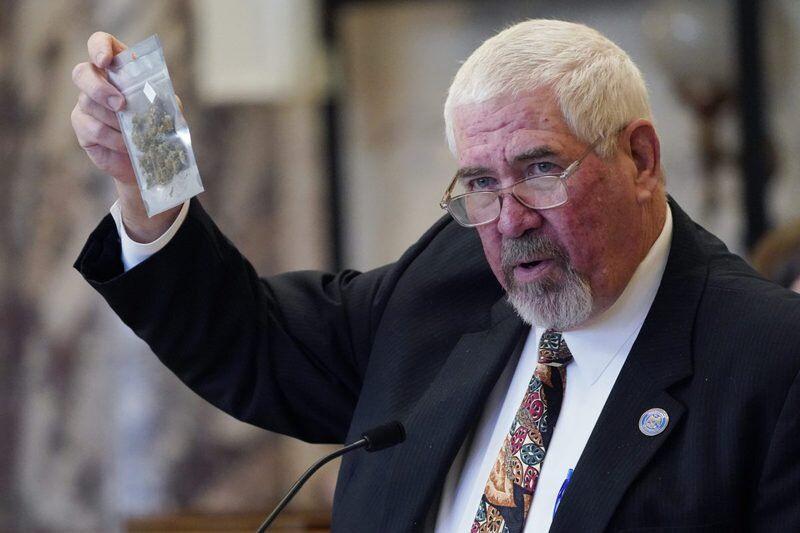
Mississippi legislators ready to legalize medical marijuana over governor’s veto
Lawmakers are confident they have the votes to overcome Gov. Tate Reeves’ opposition.
- Mississippi voters widely approved medical marijuana in 2020, but the initiative was blocked by the state Supreme Court in 2021 in a ruling that effectively destroyed the state’s entire initiative process.
- Lawmakers say the governor is holding up progress on a new bill over “unreasonable demands” about purchase limits.
- On Thursday, senators passed a 1-ounce bag, a 3.5-gram bag, and an unlit joint around the floor after the governor claimed daily patient limits of one eighth of an ounce were too high.
- Senators rejected proposed amendments that would allow outdoor growing and social equity provisions.
On Thursday, Mississippi state senators debated the fine points of their highly-anticipated SB 2095 medical marijuana legislation. Residents have been waiting over a year for medical cannabis access after voting yes on a 2020 ballot initiative that was later blocked by the Mississippi State Supreme Court on procedural grounds.
Legislators from both sides of the aisle have been working together on the new bill for months, anticipating a special session that Gov. Tate Reeves (R) promised but failed to deliver in 2021. Since October, state representatives have blamed the governor’s “unreasonable demands” about daily consumption limits for the extended delays.
But the legislature convened for its normal session on Jan. 5, 2022, and medical cannabis legalization was one of the first issues addressed.
After Thursday’s landslide vote (47-5) in favor of legal access, advocates for SB 2095 believe they have enough support to overpower any potential veto from the governor. They feel the 445-page bill is a fair compromise between the broad plan approved by almost 75 percent of voters in 2020, and the much more conservative approach their governor and some legislators are pushing for.
If passed, Mississippi’s medical marijuana program could be up and running by the end of 2022. A June 2021 poll showed 63 percent of Mississippi residents, across all age, race, gender and political demographics stand in favor of both medical and adult-use legalization. Another poll showed 20 percent of voters feel medical marijuana was the single most important issue for them.
Long time coming for advocates of legalization
In Nov. 2020, Mississippi legalization advocates were riding high after news that a broad ballot initiative supporting medical marijuana had been overwhelmingly approved by the state’s voters. Then the mayor of the city of Madison asked the state Supreme Court to invalidate Initiative 65 because of a procedural technicality that they said violated the state’s constitution.
In 2021, Mississippi’s Supreme Court granted the city of Madison’s request, blocking medical marijuana access for the entire state. A recent poll showed a plurality of residents wanted to impeach the justices who declared Initiative 65 invalid.
Thursday’s vote was a welcomed sign of progress on the issue. The lopsided tally suggests that Mississippi residents may see some form of medical cannabis by the end of 2022—even if Gov. Reeves attempts to veto the bill.
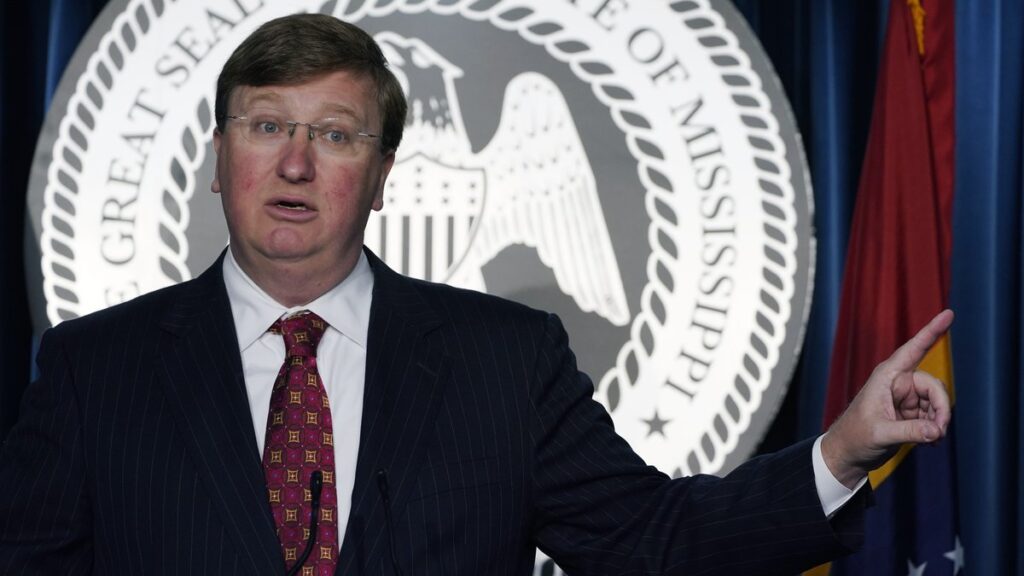
A veto may not be enough to stop this bipartisan bill
Gov. Reeves has publicly promised to veto SB 2095. But the bill could overcome his veto with supermajority support (three-fifths) from both chambers of the Mississippi Legislature.
The governor said in a Facebook post in December that the bill’s proposed patient purchase limit of 3.5 grams per day (an eighth of an ounce of cannabis flower) is too much. He urged lawmakers to “simply cut that amount in half to start the program,” then reassess several years down the road.
But lawmakers like the bill’s chief sponsor, Sen. Kevin Blackwell (R), aren’t sweating the governor’s demand. Blackwell told local reporters that he and other lawmakers are confident they’ll have enough votes to override any potential veto. Last month Sen. Brice Wiggins (R), chairman of the Judiciary Committee Division, said “it wouldn’t surprise me” when asked about the Legislature’s ability to beat a veto with enough votes.
Blackwell has also pushed back on the governor’s claim that the bill’s regulatory measures would essentially legalize recreational cannabis statewide. “I suggest that if you think that, maybe you should take the time and actually read the bill, because you’ll find that it is a medical bill,” Blackwell said on the floor of the state Senate on Thursday.
“We have worked long hours on this,” Rep. Lee Yancey (R) told a reporter late last year. “We are ready to have a special session. We have the votes to pass this. An overwhelming number in the House and Senate are ready to pass this, and we have a majority of people in Mississippi who voted for us to pass this.”
Yancey added that, “If there is any further delay, that will be squarely on the shoulders of the governor, rather than the Legislature.”
Here’s what’s in SB 2095’s 445 pages
The new bill would give the Mississippi Department of Health authority to oversee the medical cannabis industry. The state’s Department of Revenue and the Department of Agriculture and Commerce would also play regulatory roles. A nine-member advisory committee would consider issues like patient access and safety regulations. Here are the main takeaways:
- There is no cap on the number of licensed medical marijuana businesses.
- Cities, counties and localities can place zoning and other restrictions on business. Companies may need approval from local authorities to begin operation.
- Local governments could not ban medical cannabis businesses or “make their operation impracticable,” but they could opt out of the program within 90 days of SB 2095’s passage. In such a case, citizens would have to petition for the right to put the issue up for an opt-out vote.
- Two dozen medical conditions will qualify for medical marijuana with recommendation from a doctor. Those include cancer, Parkinson’s, Alzheimer’s, HIV, AIDS,, Huntington’s, sickle-cell anemia, muscular dystrophy, glaucoma, spastic quadriplegia, neuropathy, hepatitis, Crohn’s, ulcerative colitis, spinal cord disease or severe injury. Chronic medical conditions or treatments that cause severe nausea, cachexia or wasting, seizures, severe or persistent muscle spasms or chronic pain will also qualify. More conditions could be added by regulators at a later date.
- State-issued registration cards will go for $25, but some patients could qualify for a discounted fee.
- Purchase limits that would restrict patients to no more than one “medical cannabis equivalency unit” per day. The bill defines one unit as 3.5 grams of cannabis flower (an eighth of an ounce), 1 gram of concentrate, or as much as 100 milligrams of THC-infused products. Those limits are lower than in most other medical states, but Gov. Reeves still wants to allow just half those amounts.
- State-licensed products would be limited to a maximum potency of 30% THC for flower and 60% THC for concentrates.
- Patients and caretakers would be forbidden from growing their own plants.
- The bill would forbid smoking and vaping in public and in motor vehicles. Patients would also be prohibited from driving while under the influence of cannabis products.
- The bill restricts all outdoor growing, allowing only indoor cultivation facilities. Sen. Barbara Blackmon (D) contested the outdoor restrictions, and the lack of social equity measures Thursday, but had her amendments voted down on the floor.
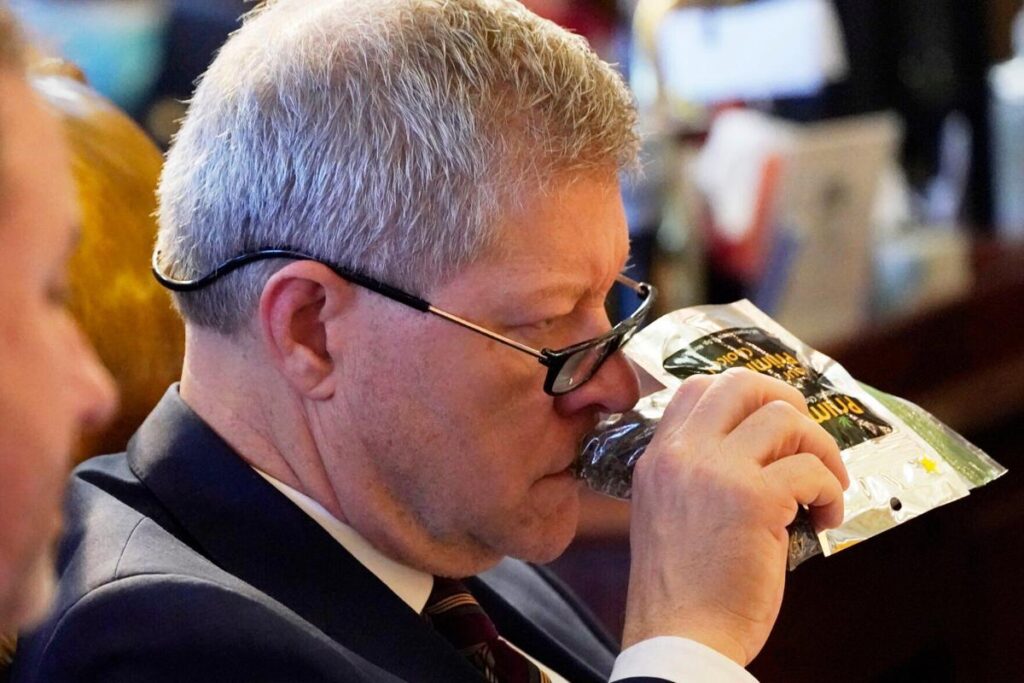
Addressing the governor’s “unreasonable” concerns
On Facebook, Gov. Reeves calculated that a 3.5 gram per day, per patient, limit would unleash roughly “1.2 billion legal joints” onto Mississippi’s streets.
“There is one remaining point in question that is VERY important: how much marijuana any one individual can get in any given day,” he argued. The governor wrote that “A simple google search shows that the average joint has 0.32 grams of marijuana. Therefore any one individual can get enough weed to smoke 11 joints a day. Every day.”
Gov. Reeves based his numbers on Google, and nearby Oklahoma’s medical cannabis data. He wrote, “In Oklahoma (which has a similar system of dispensing to what is proposed) 376,000 Oklahomans have signed up for a marijuana card. That is roughly 10% of the population of the entire state. An equivalent sign-up rate in Mississippi would yield 300,000 Mississsippians with a card to get up to 11 joints per day. That would allow the disbursement of 3.3 million joints per day in our state, which is the equivalent of approximately 100 million joints per month.”
He concluded, “Call me crazy, but I just think that’s too broad of a starting point.”
In Thursday’s session, Sen. Blackwell called out what he described as the “paranoid, Reefer Madness, Chicken Little belief expressed by a few skeptics that if we pass a medical cannabis bill, the streets of Mississippi will be flooded by pot-smoking zombies.” Sen. Blackwell was adamant that the bill aimed to bring a conservative approach to regulating medical cannabis.
Senate lawmakers are passing around a joint, and two bags of marijuana plant. The smaller bag would be the daily purchaseable amount of 3.5 grams. The bag is 1 Oz. pic.twitter.com/kX4ZDDBiZi
— Kobee Vance (@kobeevance) January 13, 2022
To demonstrate just how absurd Gov. Reeves’ calculations were, Sen. Blackwell brought hemp to the Senate floor Thursday and passed baggies and joints around to illustrate realistic purchase limits. He compared a single joint, to a 3.5 gram bag and a full ounce bag as a visual aide for his colleagues.
Sen. Blackwell had already tried to make the same point directly to the governor last week. “I took samples to show him what an ounce actually looks like—what 3.5 grams actually looks like,” the senator said. Sen. Blackwell told the Mississippi Free Press that the meeting was cordial but he didn’t sense much willingness to compromise from Gov. Reeves, who remained “non-committal.”
“I would hate for Governor Reeves to have any veto overridden because, like I said, I’ve worked with him on many different things,” Sen. Wiggins said in late December. “But the reality is that Initiative 65 passed with close to 70 percent of the vote. And the legislature spent all summer working on this and have listened to the people.”
No outdoor grow, or social equity measures
Blackwell successfully shot down a handful of proposed amendments at a committee hearing on Wednesday. But on Thursday, colleagues on the Senate floor brought several more to the floor. Sen. Barbara Blackmon (D) led the charge with two measures to add social equity and outdoor grow measures to SB 2095.
The current draft of SB 2095 only allows indoor cultivation facilities, not outdoor. Blackmon argued that this provision punished the state’s agricultural workers, since all other farmers in the state’s $9 billion agriculture industry can grow their crops outdoors.
Sen. Blackmon also cited an April 2021 study of states with the biggest agricultural industry saying, “our agriculture is number 24 in the country. The number of farmers we have is number 27. The net income from farming, the outdoor farmers, is number 20… (And) 29 percent of Mississippi’s workforce directly or indirectly work in farming.” She went on to ask, “So why would we deny almost one third of our workforce the opportunity to rise?”
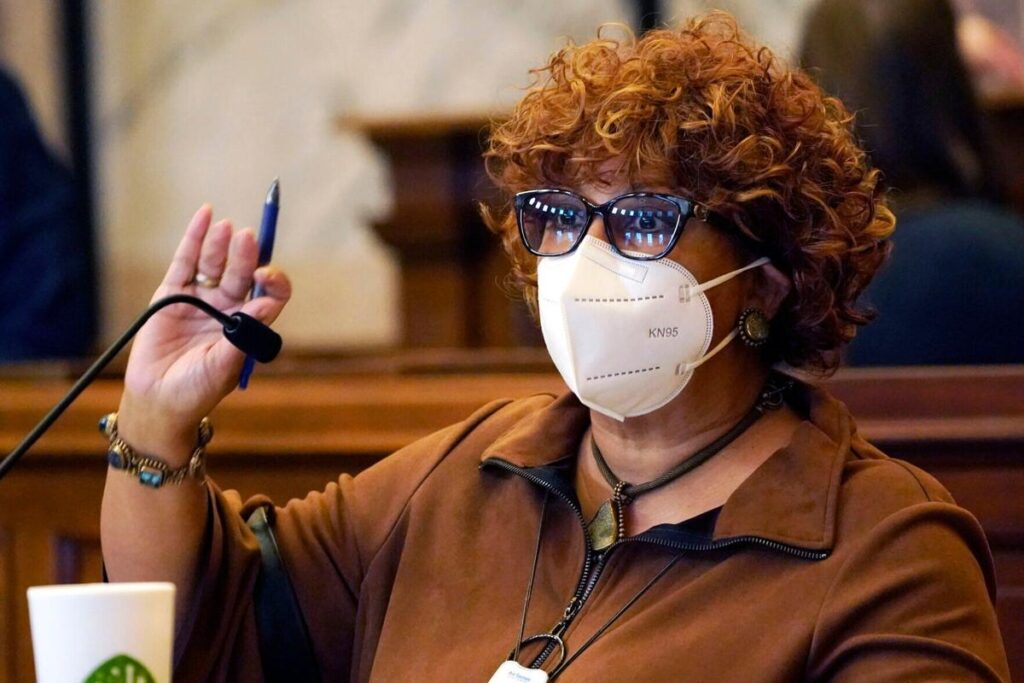
Product control vs. farming opportunity
Sen. Blackmon added that the state’s farmers had rallied in spite of COVID-19, generating over $7 billion in agricultural value in 2020, up five percent from 2019. But Sen. Blackwell got support from the floor in resisting Sen. Blackmon’s outdoor amendment. “Yes, we are a very agricultural state,” Sen. Blackwell said, “however for control purposes, this product is better grown indoors.”
Sen. Blackmon’s social equity amendment was voted “not germane to the bill.” She argued the need for the state to intentionally advance the interests of historically underserved communities. That includes residents “adversely affected by poverty and inequality.”
Sen. Blackmon quickly revived the equity amendment by reforming and reintroducing it later in the session. On the second go, she focused on cannabis licensing specifically to ensure it was germane. This time, Sen. Blackmon pointed out that Black people represent more than 40 percent of the state’s population, but only control 18 percent of Mississippi’s economy.
“We can make certain that all of our people have opportunities,” she said before referencing Dr. Martin Luther King Jr.’s dream of “of a land where men will not take necessities from the many to give luxuries to the few.”
She said to colleagues, “We have 34,400 farmers in 82 counties in this state, why would we take from them and give it to some outside corporations to benefit from this new cash cow?”
But Sen. Blackwell argued against the social equity measures, saying his bill gives every citizen “an equal opportunity right now.”
The Oklahoma argument
In response to outdoor grow concerns, Sen. Blackwell cited Oklahoma as a cautionary tale that justifies outdoor restrictions. He stated, “One of Oklahoma’s problems is with their outdoor grow. They have thousands of outdoor licenses, and part of it had to do with their fee structure and some of the things they didn’t set up.”
Sen. Blackwell added, “If you take a look at additional costs to supervise all of these additional farms, not to mention the concerns about pesticides, insecticides, fungus, other contaminants, wind drift of seeds being grown going over and growing in a neighbor’s yard or in another area that is not licensed. We’ve got it set up so that our growth will be indoor, it will be controlled, and we would ask you to vote no on the amendment.”
But Sen. Blackmon did not buy Sen. Blackwell’s Oklahoma comparison. She replied, “We will become the 36th state in this nation should we pass this bill today. So therefore, if you have only have one state that you can cite, and we’re going to become the 36th state, then I would wager you that all those other states that have outdoor growing for medical marijuana or recreational marijuana have been doing something right.”
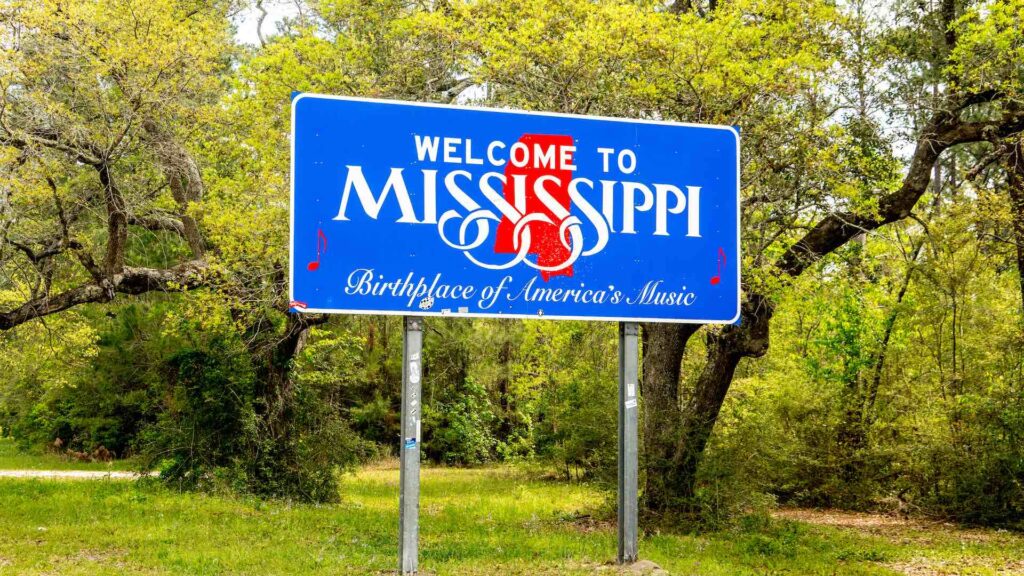
Additional amendments
A third floor amendment proposed by Sen. Derrick Simmons (D) called to adjust the state’s expungement process after the bill passed. The amendment would allow a resident who gets a medical marijuana card to also petition a court for immediate expungement of cannabis-related conviction, instead of the current five-year window. Sen. Blackwell said he liked the bill, but still called for no vote and suggested Sen. Simmons create a standalone bill addressing the matter.
Sen. Chad McMahan (R) got the same response when he proposed a second amendment that would have let local governments restrict cannabis operations from opening within a 1,000-foot buffer zone of schools, childcares and churches. Sen. Blackwell suggested Sen. McMahan submit a separate bill, and colleagues ultimately agreed on rejecting it.
But Blackwell was most shaken up by an attempt to strike the entirety of his bill and replace it with a far more restrictive approach. Sen. Angela Burks Hill (R) described her proposition as “a true medicinal bill.” She hoped to install strict limits on dosages and potency, expressing her desire to build system that was “not something that’s smoking and candies and brownies that’s passed off as medical.”
What’s next for SB 2095?
If the bill passes both chambers of Mississippi’s congress with a supermajority, the licensing process would begin within 120 days. The first licenses would be issued a month later.
Dr. Nathan R. Shrader, director of American Studies at Millsaps College, conducted the study that placed cannabis approval across the state at about 63 percent. Dr. Schrader commented on the study, “If you look closely at what the voters are expressing in terms of their policy preferences, you will see they do not appear to be anywhere near the same ideological positions as the majority of the state’s elected officials.”
He added, “The coming months, including the 2022 legislative session, will be a test of how long the state’s elected leaders can hold positions that are greatly at odds with the majority of Mississippi’s voters.”
By submitting this form, you will be subscribed to news and promotional emails from Leafly and you agree to Leafly’s Terms of Service and Privacy Policy. You can unsubscribe from Leafly email messages anytime.

Post a comment: